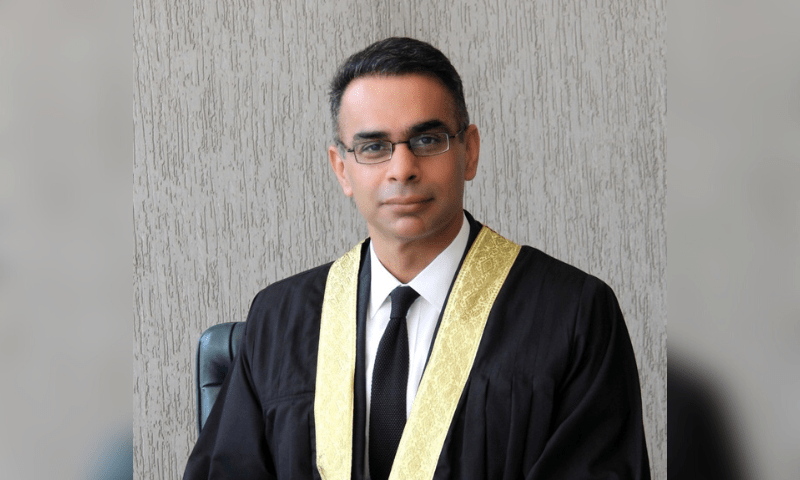Islamabad High Court’s (IHC) Justice Babar Sattar has said that prima facie no state official was authorised to surveil citizens and anyone doing so or aiding such an endeavour would be “liable for offences”.
The observation came in a written court order issued hearing on a case in connection with petitions filed last year by ex-premier Imran Khan’s spouse Bushra Bibi and Najam Saqib, son of former chief justice of Pakistan Saqib Nisar, against alleged audio leaks.
The IHC judge had earlier dismissed multiple petitions from different authorities requesting that he recuse himself from the case.
The detailed court verdict of the April 29 hearing had said there was a “growing abhorrent practice” of using recusal requests accompanied by efforts to “scandalise the court and intimidate the judge into disqualifying himself/herself from hearing a matter, in which a party to the proceedings suspects that the outcome might not be to its liking”.
In a later hearing, he had issued contempt notices to the director generals (DGs) of the Federal Investigation Agency (FIA) and the Intelligence Bureau (IB) as well as the Pakistan Telecommunication Authority (PTA) chairman and members for filing “collusive applications” seeking his recusal.
The court order for Wednesday’s hearing, a copy of which is available with Dawn.com, said that the additional attorney general’s responses showed that “no entity or agency of the country has been authorised to undertake surveillance or undertake legal interception of telephone calls or telecom data.”
“It appears prima facie that no official of the executive/federal government, intelligence agency or police is authorised to undertake surveillance of the citizens of Pakistan. To the extent that any employee of the government or investigation or intelligence agency is undertaking surveillance and/or telecom companies and service providers are affording their facilities to facilitate surveillance, all such individuals are liable for offences under provisions of the Telegraph Act, the Telecommunication Act, the Fair Trial Act and Peca.
“Any such unauthorised surveillance would also be in breach of fundamental rights of citizens guaranteed by Articles 9, 10A, 14 and 19 of the Constitution read with Article 4 and would cause irreparable harm to the liberty, dignity and privacy of the citizens being surveilled.


